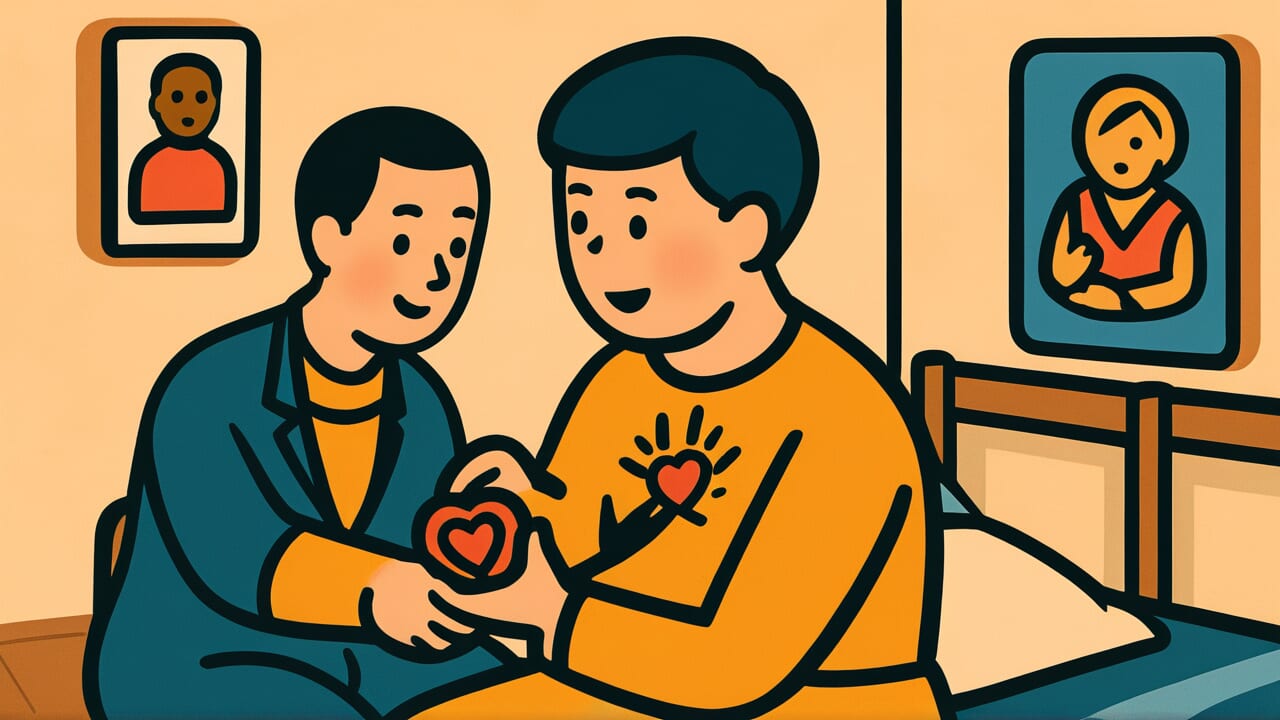How to Read “An adult does not lose the heart of a baby”
Taijin wa sekishi no kokoro wo ushinawazu
Meaning of “An adult does not lose the heart of a baby”
This proverb teaches that adults should keep the pure and honest heart of a baby even as they grow older.
As people gain social experience and knowledge, they tend to become calculating. They grow suspicious and judge things based on personal gain or loss.
When people become too worldly-wise, they lose sight of what truly matters.
Babies don’t lie. They express genuine emotions and show pure interest and joy in what they see.
This proverb values keeping that clear heart, the ability to feel moved honestly, and sincerity without calculation throughout adulthood.
People use this saying to praise someone who stays humble and sincere despite their age. It also encourages those who have become jaded to recover their original purity.
Even today, this proverb reminds us of the importance of living sincerely in our complex society. Its message remains meaningful.
Origin and Etymology
This proverb likely comes from ancient Chinese philosophy, especially Confucianism and Taoism.
The phrase “heart of a baby” connects deeply to the concept of “sekishi no shin” found in Mencius’s teachings. Mencius argued that the pure heart of a newborn baby represents humanity’s true nature.
In Taoism, babies also appear as ideal beings. Laozi’s philosophy taught that the baby-like state, uncorrupted by knowledge or desire, represents living in harmony with nature’s way.
These Eastern philosophical images of babies came to Japan and eventually became established as a proverb.
By combining the contrasting words “adult” and “baby,” this proverb expresses a paradoxical truth about life.
It teaches that precisely because adults have aged and gained experience, they should maintain baby-like innocence.
As people acquire knowledge and calculation skills through social life, they tend to lose their original honesty and purity.
This proverb warns against that tendency and questions what our hearts should truly be like.
Usage Examples
- That company president has run the business for decades, but following “an adult does not lose the heart of a baby,” his eyes still light up at new ideas
- If you stay successful without becoming arrogant and maintain the attitude of “an adult does not lose the heart of a baby,” people will naturally follow you
Universal Wisdom
Humans inevitably lose something as they grow. This is unavoidable reality.
As children, we could feel pure joy just chasing butterflies. Finding a pretty stone made us feel like we’d discovered treasure.
But as adults, our ability to feel such pure happiness gradually weakens.
Why does this happen? Because we “know too much.”
What value does this flower have? Is this action beneficial or harmful to me? What lies behind someone’s words?
Such calculations and analyses start working automatically in our minds. This is necessary wisdom for living, but it also steals our heart’s freedom.
This proverb has been passed down because people recognized this contradiction long ago.
Knowledge and experience make us wise, but they also harden our hearts. We learn to doubt, to be cautious, and to protect ourselves by not expecting too much.
However, the armor we build sometimes blocks out life’s richness itself.
The heart of a baby symbolizes defenselessness. It’s a heart that trusts the world without fear of being hurt and reacts honestly.
Not losing this as an adult means maintaining a sophisticated balance—staying open-hearted while possessing wisdom.
This isn’t easy. That’s why this proverb stands as an ideal and continues to resonate with people’s hearts.
When AI Hears This
The human brain has about 1,000 trillion synaptic connections right after birth. By age three, about 40 percent of unused circuits are pruned away.
This is called “use-dependent pruning”—a mechanism that makes the brain efficient by keeping only frequently used circuits.
For example, growing up in a Japanese environment causes the neural circuits that distinguish English L and R sounds to be deleted as unnecessary. We gain survival efficiency but lose infinite possibilities.
Interestingly, highly creative adult brains retain “inefficient circuits that should have been deleted.”
Circuits for logical thinking and intuitive thinking, language areas and visual areas—regions that normally specialize activate simultaneously. This isn’t simple underdevelopment but the result of active maintenance behavior.
The brain deletes unused circuits, but conversely, “circuits used intentionally can be preserved.”
Keep drawing like a child, engage in meaningless play, make wild associations. Such seemingly wasteful activities actually resist pruning.
Adults who don’t lose the heart of a baby are people who defy efficiency pressure and deliberately keep using roundabout neural circuits.
From a neuroscience perspective, this isn’t about not forgetting—it’s actively protecting circuits from deletion.
Lessons for Today
Modern society constantly demands that you “be smart.” You’re expected to gather information, calculate risks, and act efficiently.
This isn’t wrong in itself. But there are things you must not lose in the process.
These include the heart that feels moved honestly, the courage to trust people, and the flexibility to open your heart to new things.
This proverb teaches that wisdom and purity don’t oppose each other.
Rather, truly mature adults are those who maintain softness of heart while possessing rich experience.
This doesn’t mean being naïve like a child. What matters is not closing your heart’s door while maintaining adult responsibility and judgment.
Specifically, cherish your sensitivity to notice small daily joys.
The heart that can honestly think “how beautiful” when seeing a pretty sky. The honesty to genuinely appreciate people’s kindness. The curiosity to feel excited about new encounters and experiences.
By consciously preserving these feelings, your life becomes richer.
Calculation and self-interest are sometimes necessary, but don’t let them become everything. The purity of your heart is a power that protects you and makes your life shine.



Comments